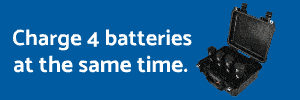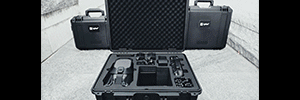There are a lot of folks asking questions about drones and photography/videography in the forums. sUAV are essentially flying cameras.
As long as you follow the FAA rules when flying, you're basically a photographer, and you have certain federally-protected legal rights:
It's nice to know them, and share them with others.
Not only do you have legal rights as a photographer, but most states provide civil and criminal penalties against anyone who attempts to infringe on your rights.
Now, we obviously want to try and be as understanding as we can, defusing situations where possible, being "ambassadors of the flying community" but, frankly, we are pilots, flying cameras in the sky. Our primary focus should be on flying safely.
Know your rights. And don't be afraid of having your assistant hand a "concerned party" a print-out of the above PDF.
If you are legally flying in FAA-controlled air-space "I'm calling the police!" should absolutely get them a copy of the attached PDF, and possibly "Oh, could you call the police for us? I'm flying right now, and really shouldn't take my eyes off of my aircraft or controls. Thanks!"
Again: know your rights.
As long as you follow the FAA rules when flying, you're basically a photographer, and you have certain federally-protected legal rights:
It's nice to know them, and share them with others.
Not only do you have legal rights as a photographer, but most states provide civil and criminal penalties against anyone who attempts to infringe on your rights.
Now, we obviously want to try and be as understanding as we can, defusing situations where possible, being "ambassadors of the flying community" but, frankly, we are pilots, flying cameras in the sky. Our primary focus should be on flying safely.
Know your rights. And don't be afraid of having your assistant hand a "concerned party" a print-out of the above PDF.
If you are legally flying in FAA-controlled air-space "I'm calling the police!" should absolutely get them a copy of the attached PDF, and possibly "Oh, could you call the police for us? I'm flying right now, and really shouldn't take my eyes off of my aircraft or controls. Thanks!"
Again: know your rights.










